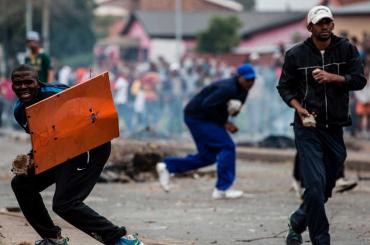

Mathias Thoenig
Professor of Economics, HEC, University of Lausanne and CEPR Research Fellow
Mathias Thoenig is a Professor of Economics at the School of Business and Economics (HEC) at the University of Lausanne, a CEPR Research Fellow in the international trade and macro programs and an elected Council Member of the European Economic Association. He is a Distinguished Scholar at IMD Business School and a Professorial Fellow at Queen Mary University of London. Mathias Thoenig received his Ph.D. from University Paris-1 Sorbonne and his B.A. in engineering from Ecole Polytechnique. He has held visiting appointments at International Monetary Fund, MIT, SciencesPo Paris, University of British Columbia and University Pompeu Fabra. He also served on the editorial boards of Journal of European Economic Association and International Economics.
His research interests include development, international trade and political economy of conflicts and migration. He has published and forthcoming papers in several international journals, including, among others: American Economic Review, Econometrica, Quarterly Journal of Economics, Review of Economic Studies, Harvard Business Review, Journal of European Economic Association. He has been awarded an ERC grant for his work on the role of distrust and grievances in ethnic conflicts.
Recent work by Mathias Thoenig
-

Boiling point in Africa: Climate change and inter-group conflict across the continent
Resource constraints due to climate change are increasing conflicts between herders and farmers trying to make a living
Published 03.03.21
-

Countering the mining curse
Mineral-rich countries often do not prosper economically due to increased local conflict associated with foreign ownership of mines
Published 20.07.18
-

Fragmented civil wars
Multilateral pacification policies can be effective in resolving civil wars, but arms embargoes can fail if targeted militias increase their activity
Published 26.06.17